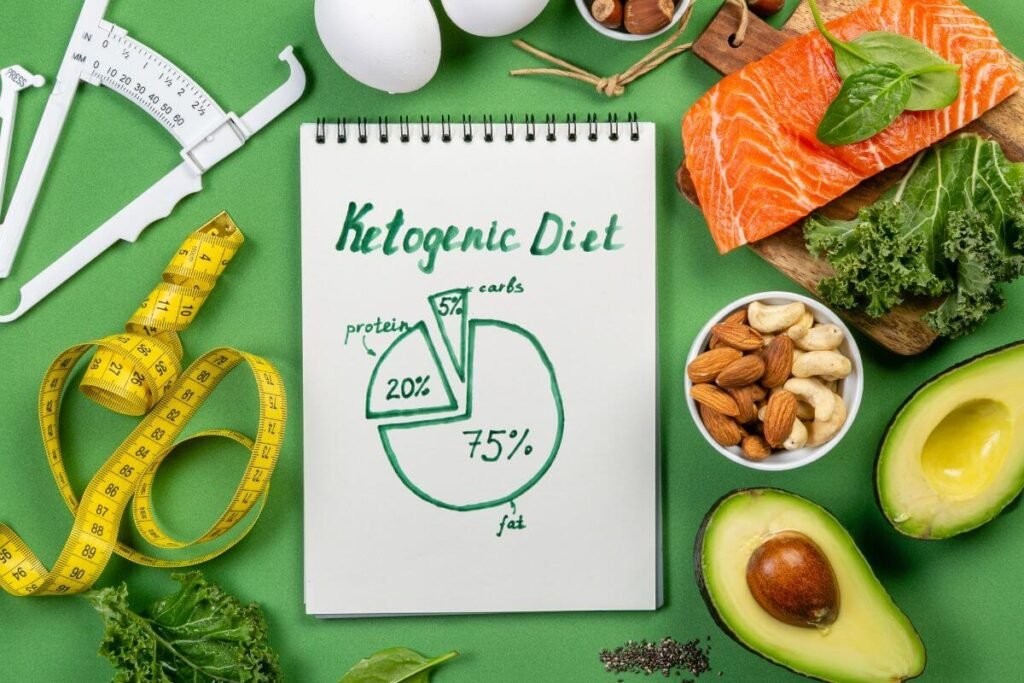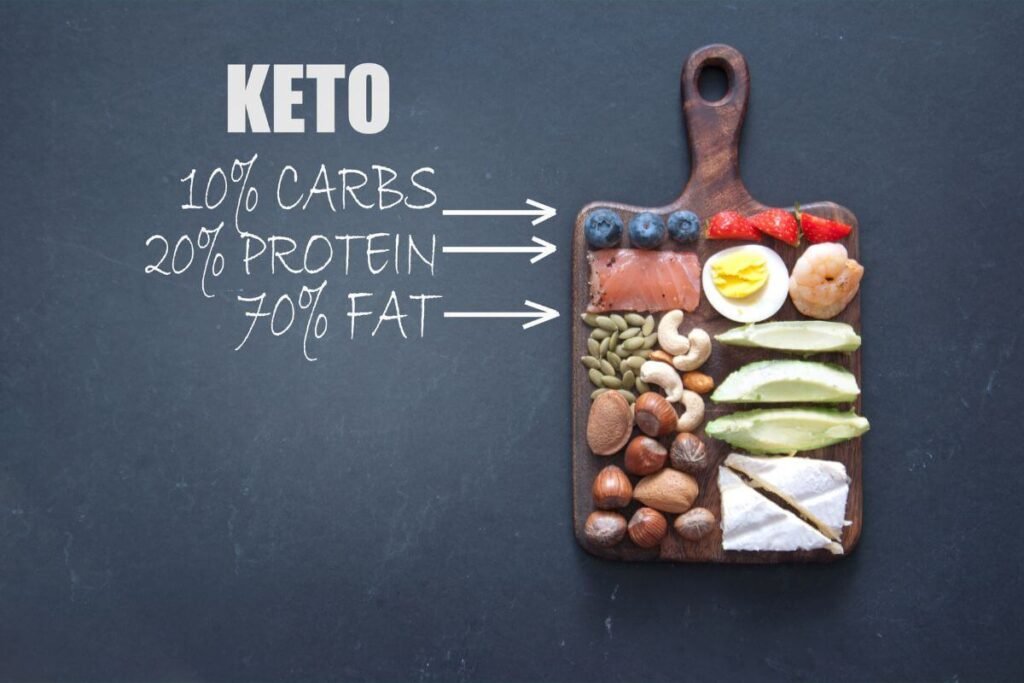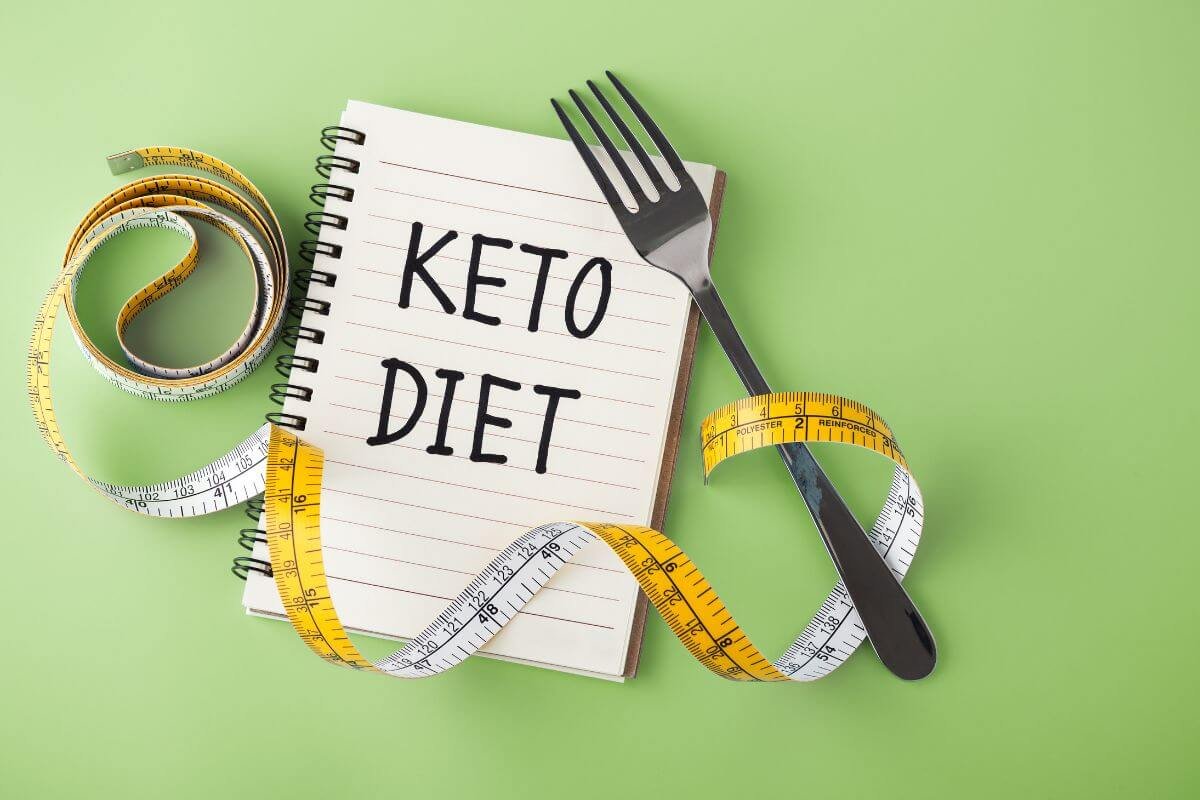Are you curious about the keto diet and its potential to transform your health and well-being? In today’s fast-paced world, the keto diet has gained immense popularity as a top choice for individuals seeking to prioritize their health and fitness. This comprehensive guide will take you on a journey through the fascinating world of the keto diet, providing insights into its principles, highlighting its numerous benefits, and offering practical tips for your path to success. Whether you’re considering embarking on this dietary journey or just looking to deepen your understanding, this article is your essential resource for unlocking the power of the keto diet.
Table of Contents
What is the Keto Diet?
The keto diet is a high-fat, low-carbohydrate diet designed to induce a metabolic state called ketosis. During ketosis, the body primarily burns fat for energy instead of carbohydrates. This process offers numerous health benefits, including weight loss, improved mental clarity, and better blood sugar control.

The Science Behind Ketosis
To understand the keto diet, it’s essential to grasp the science behind ketosis. When you consume minimal carbohydrates, your body’s glucose levels decrease. As a result, the liver begins to break down fats into molecules called ketones, which serve as an alternative fuel source. This shift in energy production is what characterizes ketosis.
Also See: Carnivore Diet vs. Keto: Choosing the Right Low-Carb Path
Getting Started with the Keto Diet
Setting Your Macronutrient Ratios
The cornerstone of the keto diet is adjusting your macronutrient ratios. Typically, a keto diet consists of approximately:
- 70-80% of calories from fats
- 20-25% of calories from protein
- 5-10% of calories from carbohydrates

Planning Your Meals
Creating a meal plan is crucial for keto diet success. Focus on incorporating healthy fats, such as avocados, nuts, and olive oil, while minimizing carb intake. Include a variety of non-starchy vegetables to meet your micronutrient needs.
Tracking Your Progress
To ensure you’re in ketosis, consider using ketone testing strips or a blood ketone meter. These tools help you monitor your progress and make necessary adjustments to your diet.
Benefits of the Keto Diet
Weight Loss
One of the primary reasons people turn to the keto diet is its remarkable ability to promote weight loss. By relying on fat for energy, your body burns stored fat, leading to a gradual and sustainable reduction in body weight.
Improved Cognitive Function
Ketones are not only a source of energy but also provide enhanced mental clarity and focus. Many individuals on the keto diet report improved cognitive function and increased productivity.
Better Blood Sugar Control
The keto diet can be especially beneficial for individuals with type 2 diabetes. By reducing carb intake, it helps regulate blood sugar levels and may even reduce the need for medication.
Overcoming Keto Challenges
The Keto Flu
Some people experience flu-like symptoms when transitioning to the keto diet. This is often referred to as the “keto flu” and can include fatigue, headaches, and nausea. Staying hydrated and increasing your salt intake can help alleviate these symptoms.
Social and Dining Out Challenges
Maintaining a keto diet in social settings or when dining out can be challenging. However, most restaurants offer keto-friendly options, and friends and family can be supportive once they understand your dietary choices.

Conclusion
In conclusion, the keto diet offers a unique approach to health and weight loss. By shifting your body into ketosis, you can tap into its fat-burning potential, leading to a range of benefits from weight loss to improved mental clarity and better blood sugar control. While the keto diet may present some initial challenges, the long-term rewards are well worth the effort.
FAQs
- Is the keto diet suitable for everyone?
- The keto diet may not be suitable for individuals with certain medical conditions or those who are pregnant or breastfeeding. Consult with a healthcare professional before starting the diet.
- Can I consume alcohol on the keto diet?
- Alcohol consumption should be limited on the keto diet, as it can interfere with ketosis. If you choose to drink, opt for low-carb options like vodka or whiskey in moderation.
- How long does it take to achieve ketosis?
- The time it takes to enter ketosis varies from person to person but typically ranges from a few days to a week of following a strict low-carb diet.
- Are there any long-term side effects of the keto diet?
- Some individuals may experience side effects such as constipation or nutrient deficiencies on the keto diet. It’s essential to maintain a balanced and varied diet to mitigate these risks.
- Can I follow the keto diet as a vegetarian or vegan?
- It is possible to follow a vegetarian or vegan keto diet by focusing on plant-based fats and protein sources, such as avocados, nuts, and tofu. However, careful meal planning is necessary to ensure nutritional adequacy.
In this comprehensive guide, we’ve explored the keto diet’s principles, benefits, and challenges. Whether you’re considering embarking on this dietary journey or just curious about its effects, the keto diet offers a promising path toward improved health and well-being.




